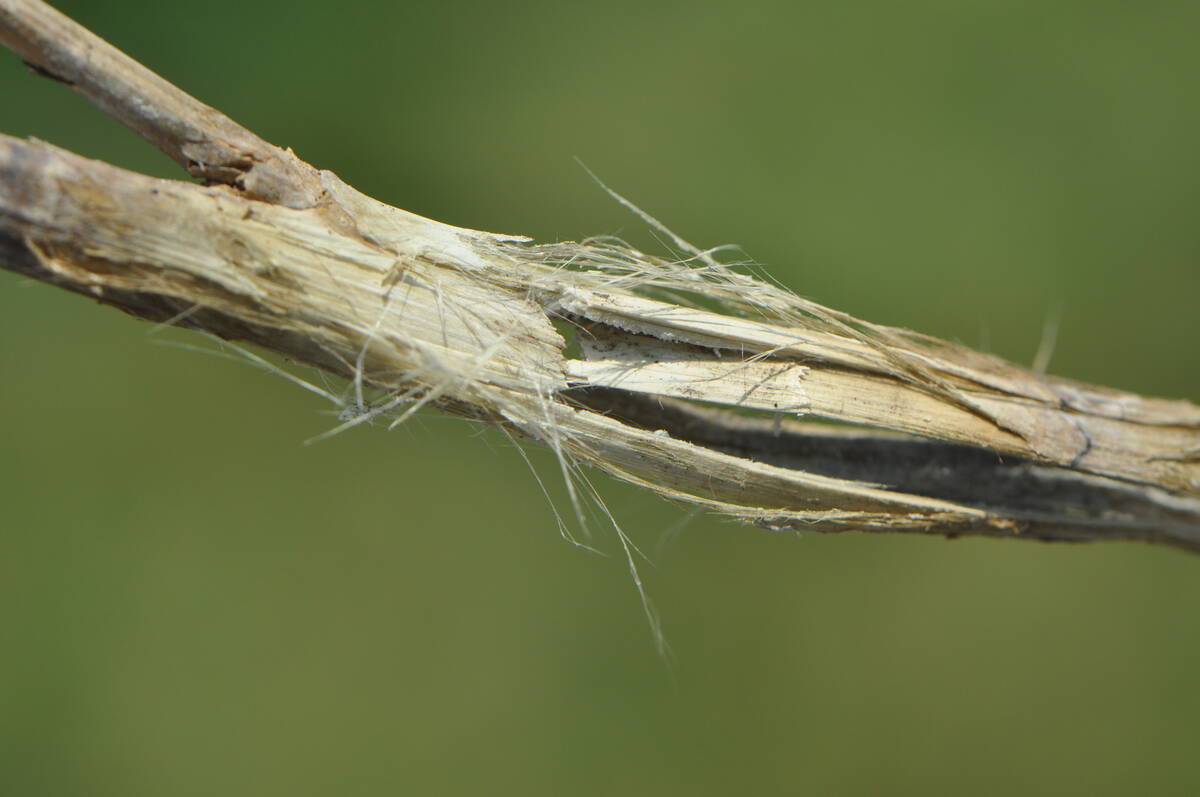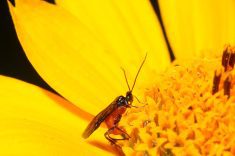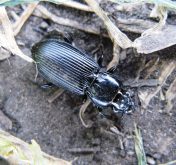Cornell University researchers are combining two biotechnologies to control diamondback moths with sex instead of insecticide.
The pesky feeders on crucifer crops, including canola, mustards and vegetables, have developed resistance to many insecticides as well as Bt (Bacillus thuringiensis), a soil bacteria that has been genetically engineered into corn and cotton to help control such pests.
The Cornell Chronicle newsletter cites recent research in which male diamondback moths genetically engineered with a gene that prevents females from reproducing can suppress populations and slow their evolution of resistance to Bt.
Read Also

Manitoba sclerotinia picture mixed for 2025
Variations in weather and crop development in this year’s Manitoba canola fields make blanket sclerotinia outlooks hard to pin down
“We are at a crossroads right now with how we control pests, reduce pesticides and provide food for a growing world population in a changing climate,” said Anthony Shelton, professor of entomology at Cornell’s New York State Agricultural Experiment Station (NYSAES) in Geneva, New York, and co-author of the paper. “We need to put our heads together to solve these problems with new solutions.”
The genetically engineered moth was developed by the United Kingdom’s Oxitec Ltd.
A paper published in BMC Biology describes greenhouse trials where high numbers of the GE male moths were released into cages containing pest diamondback moths. Within a few generations, the engineered moths mating with the pest females led to a rapid decline of the pests.
The Chronicle said that in additional experiments, the researchers released low levels of the GE male moths in cages with Bt broccoli and pest moths. They discovered that the GE males kept pest populations in check and also delayed the buildup of resistance to the Bt broccoli.
“Adding the two biotechnologies together — engineered insects and Bt plants — demonstrates that you could both suppress the pest population and also decrease the number of Bt-resistant individuals in the population. The way forward in farming is responsible integrated pest management to improve available methods and to introduce new methods for safe and sustainable insect pest control,” Shelton said.



















